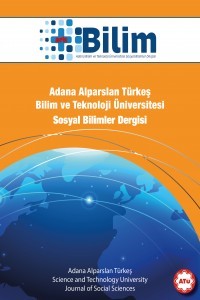
Artıbilim Adana Alparslan Türkeş Bilim ve Teknoloji Üniversitesi Sosyal Bilimler Dergisi
Yazarlar: Özge Ceylin YILDIRIM
Konular:Sosyal
Anahtar Kelimeler:Smart Cities,Foucault,Deleuze,Lefebvre,Songdo,Toyota Woven
Özet: Today, more than half of the world's population lives in cities and this rate is increasing day by day. As cities grow, they bring new problems such as traffic congestion, waste management, pollution, housing problems, infrastructure problems, epidemics. Various city definitions are emerging for the adaptation of cities to current and future needs, increasing the quality of life and sustainability of resources. The first of these is the concept of smart city, in which the functioning of information and communication technologies in cities is discussed. This study focuses on providing a comprehensive critique and understanding of the smart city paradigm and practice, based on the discourses of Foucault, Deleuze and Lefebvre, by investigating the uncertain aspects of the construction of smart cities. By reviewing the literature and detailing the concept of smart city through a multidimensional conceptual framework, Songdo Smart City and Woven Smart City planned under Toyota financing are compared. According to the results of the research, while the relationship between smart cities and the discourses of the three thinkers in the 20th century draws attention, although different technological and managerial innovations have been introduced in smart city approaches in 20 years, the power relationship of the city dweller, the observer-observed context, evaluation as pure data and evaluated within the framework of the concept of the right to the city. A holistic planning approach and people-oriented perspectives need to be developed.